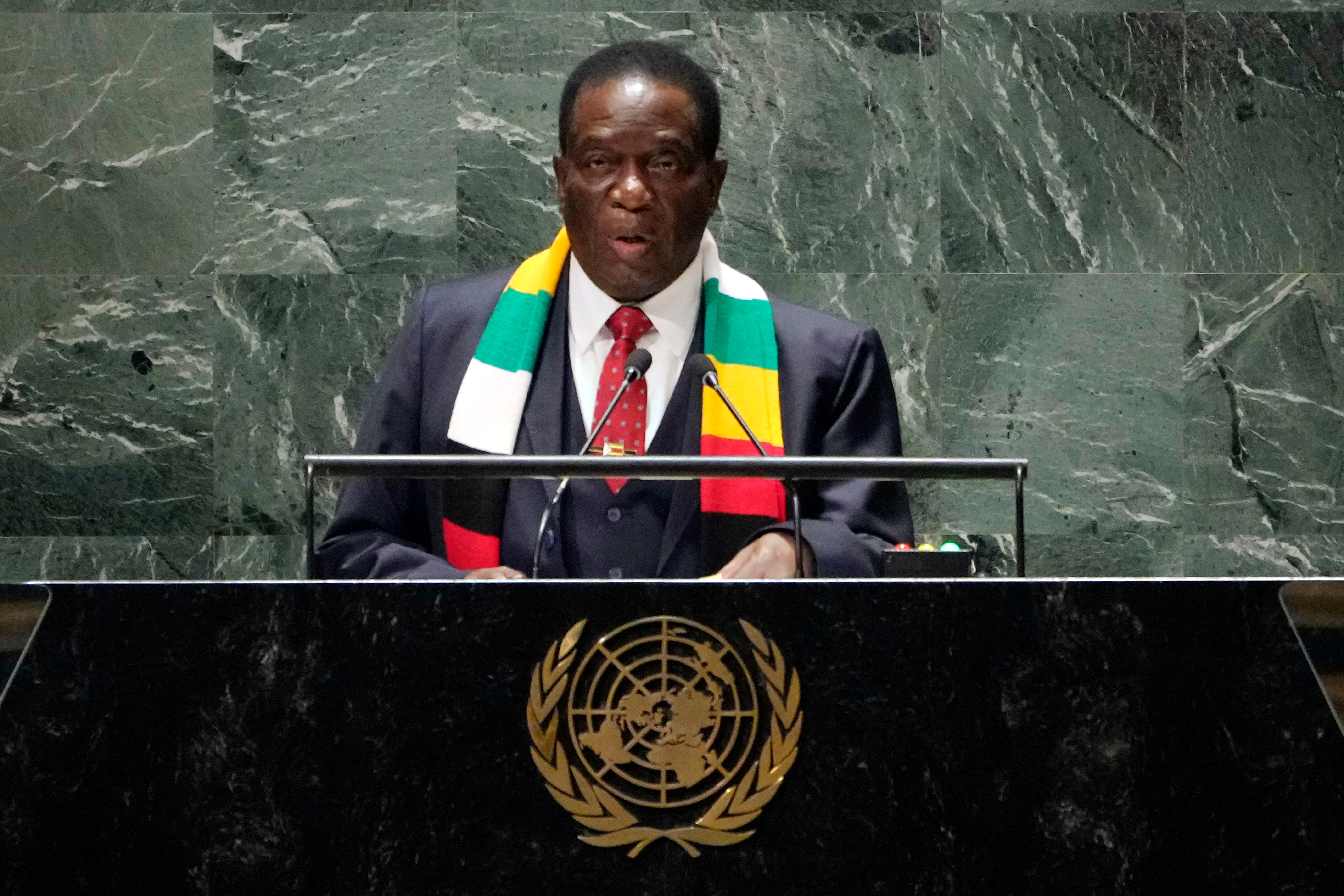Zimbabwe's opposition boycotts president's 1st State of the Nation speech since disputed election
Zimbabwe’s main opposition party has boycotted President Emmerson Mnangagwa’s first State of the Nation Address since disputed elections in August

Zimbabwe’s main opposition party on Tuesday boycotted President Emmerson Mnangagwa's State of the Nation address following his reelection in a disputed August election, revealing the widening political cracks in the southern African nation amid allegations of a post-vote clampdown on government critics.
Citizens Coalition for Change spokesperson Promise Mkwananzi said the party's lawmakers stayed away from the speech because it views Mnangagwa as “illegitimate.”
The CCC accuses Mnangagwa, 81, of fraudulently winning a second term and using violence and intimidation against critics, including by having some elected opposition officials arrested.
The ruling ZANU-PF party, which has been in power in Zimbabwe since the country's independence from white minority rule in 1980, also retained a majority of Parliament seats in the late August voting. Western and African observers questioned the credibility of the polling, saying an atmosphere of intimidation existed before and during the presidential and parliamentary elections.
Mnangagwa's address at the $200 million Chinese-built Parliament building in Mt. Hampden, about 18 kilometers (11 miles) west of the capital, Harare. officially opened the new legislative term.
He described the August elections as “credible, free, fair and peaceful” but did not refer to the opposition boycott during his speech, which he used to lay out a legislative agenda that included finalizing a bill that the president's critics view as an attempt to restrict the work of outspoken non-governmental organizations.
Mnangagw said Zimbabwe’s troubled economy was “on an upward trajectory” despite “the illegal sanctions imposed on us by our detractors.” He was referring to sanctions imposed by the United States about two decades ago over alleged human rights violations during the leadership of the late former President Robert Mugabe.
The long-ruling autocrat was removed in a 2017 coup and replaced by Mnangagwa, his one-time ally. Mugabe died in 2019.
Mnangagwa said rebounding agriculture production, an improved power supply, a booming mining sector, increased tourist arrivals and infrastructure projects such as roads and boreholes were all signs of growth in Zimbabwe, which experienced one of the world's worst economic crises and dizzying levels of hyperinflation 15 years ago.
The few remaining formal businesses in the country of 15 million have repeatedly complained about being suffocated by an ongoing currency crisis.
More than two-thirds of the working age population in the once-prosperous country survives on informal activities such as street hawking, according to International Monetary Fund figures. Poor or nonexistent sanitation infrastructure and a scarcity of clean water has resulted in regular cholera outbreaks.
According to the Ministry of Health and Child Care, an outbreak that started in late August had killed 12 people by the end of September in southeastern Zimbabwe. Authorities in Harare said Tuesday that they had recorded five confirmed cases of cholera but no deaths in some of the capital’s poorest suburbs.
___
AP Africa news: https://apnews.com/hub/africa
Bookmark popover
Removed from bookmarks